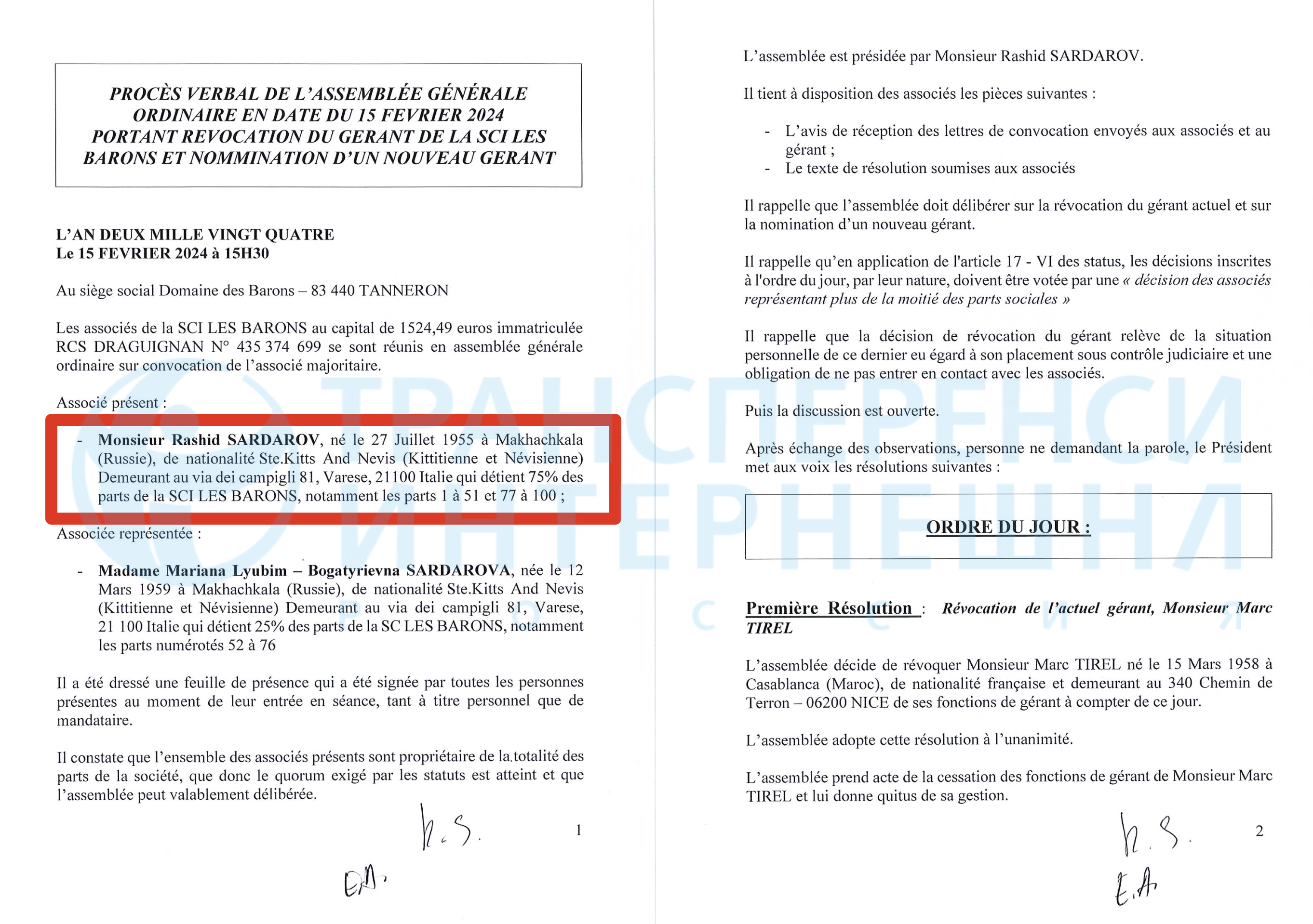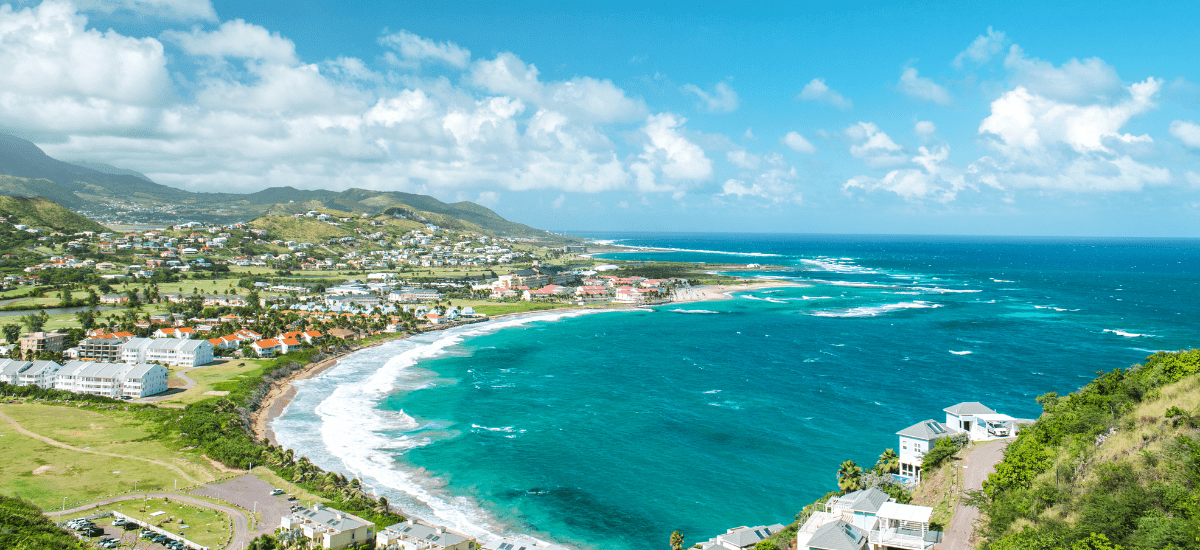Rashid Sardarov owns JSC South Ural Industrial Company (ЮУПК), which extracts and processes oil and gas. His business grew significantly due to his exclusive access to the processing of Kazakh gas condensate at Gazprom facilities—resources under the control of a state-owned company. A Novaya Gazeta investigation revealed that Sardarov built a complex international scheme, allowing him to move profits abroad while bypassing the Russian tax system.
He is also known for his hunting estates in Namibia, where he acquired white rhinos—animals under special protection—exclusively for trophy hunting. Sardarov also owns luxury real estate in France, including the Münchhausen estate and the former mansion of writer Martin Gray. According to Nice Matin, the latter property was seized by French authorities in 2023 as part of a fraud case—launched after tens of millions of euros “disappeared” during a villa purchase involving a Russian family.
Alongside his previously known citizenship, Sardarov has acquired yet another passport from a Caribbean nation. The Transparency International Russia team found documents in the French corporate registry Pappers, confirming that as of February 2024, Sardarov and his wife Marianna are citizens of Saint Kitts and Nevis.

It was previously reported that Sardarov holds a Bosnian passport, which he obtained outside standard naturalization procedures in exchange for investment pledges in the local energy sector.
Why would a business person need a Saint Kitts passport?
Saint Kitts and Nevis is not just a tropical paradise—it operates one of the world’s oldest citizenship-by-investment programs. By investing $250,000 or more, an individual can secure citizenship within a few months. However, its real value lies in its functionality, not just speed.
“Saint Kitts is an offshore and tax haven. A citizen of this country can quickly register a company, and no one will know who the real owner is. The same applies to yachts—ownership details remain undisclosed. This is the perfect tool to preserve anonymity and evade accountability in case of violations,” explains Transparency International analyst Natalia Korotonozhkina.
TI-Russia notes that Sardarov is not just a wealthy individual but a businessman who built his fortune through privileged access to natural resources and state infrastructure. In 2016, the Panama Papers linked him to dozens of offshore companies created through Mossack Fonseca. His strategy has always been to distribute assets globally while no restrictions apply—and his Saint Kitts passport is yet another step in this process.
Sardarov’s case illustrates how major players in Russia’s resource economy systematically build legal and financial shields for themselves despite holding no formal government positions and avoiding sanctions. At the same time, their wealth stems directly from Russian state-controlled resources. Understanding where this capital is secured and what legal loopholes enable such insulation is crucial for ensuring transparency and accountability.

